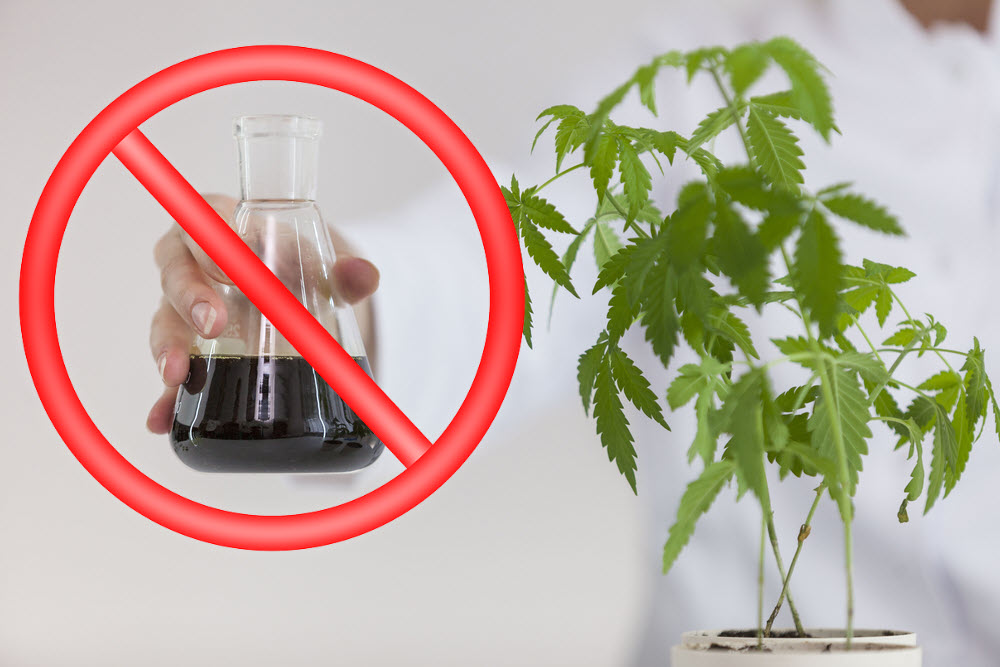
Oregon Bans Synthetic Cannabinoids, Will Other States Do The Same Soon?
Oregon state regulators will enact a ban on cannabinoids manufactured through laboratory processes; making the state the first to restrict sales of the alleged synthetic cannabinoids by various regular retailers and grocery stores in the country. The ban by state marijuana regulators, which goes into effect July 1, prohibits the sale of lab-made cannabinoids along with delta-8-THC at drugstores, various retailers, and supermarkets, which have yet to obtain a specific license. The new rulebook comes into effect weeks after a federal appeals court ruled that delta-8-THC and various hemp-derived cannabinoids are legitimate under federal regulations.
Minor cannabinoids and delta-8-THC derived from hemp have grown into a statewide business due to the federal legalization of hemp processing and farming through the 2018 Agriculture Act. Although these cannabinoids are usually found in very small concentrations in hemp, many of the materials, if you see any at all, could be made in a lab by chemically converting CBD. However, the OLCC (Oregon Liquor and Cannabis Commission) has concerns about the safety of the process and the chemical compounds used in it, and now over a dozen other states have enacted bans on delta-8 THC.
OLCC Hemp and Processing Compliance Specialist Steven Crowley told Oregon Live that delta-8-THC and various cannabinoids began to gain popularity among hemp processors after an excess of CBD overwhelmed the market.
Crowley explained that the supply of CBD has been outstripped by the demand for CBD. “As a result, the people who made CBD available have been looking for other ways to boost it. People started looking for completely different products that could convert CBD. That’s where you get the Delta 8 THC merchandise.”
FDA WARNS ABOUT DELTA-8 THC
Last month, the FDA (Food and Drug Administration and the CDC (Centers for Disease Control and Prevention)) issued warnings about delta-8-THC, noting that there were over a hundred reports of adverse effects from products containing the cannabinoid documented over a fifteen month period. The Oregon Liquor and Cannabis Commission is also concerned about the safety of the chemical compounds used in processing CBD into various cannabinoids and whether minute amounts of the materials can be preserved in finished products.
Crowley stated that they have tests for pesticides and also tests for residual solvents from the extraction process. But they don’t have tests for every possible chemical reagent that could be used to convert a cannabinoid into something else in the lab, or any tests for the by-products of the reaction.
New regulations from the Oregon Liquor and Cannabis Commission will ban sales of products containing synthetic cannabinoids from regular retail outlets, effective July 1. From this point on, trading in these products is only permitted in sales outlets authorized by the OLCC. However, this will only happen after they have gone through rigorous safety testing and received FDA approval.
The OLCC ruling is being protested by companies that make and sell hemp-derived cannabinoids, including Wyld, an Oregon company that makes gummy cannabinoid CBN, which can be processed from CBD and has been shown to aid sleep. Wyld and Wyld CBD general counsel Gabe Lee said the new regulations would benefit the company’s bottom line and be detrimental to consumers.
Gabe Lee said that the Wyld elderberry CBN gummy candy is currently the best selling gummy candy in the world. He added that it makes up 20-30% of their income depending on the state and people love it.
Rather than an outright ban, Lee suggested that Oregon spell out best practices to follow when manufacturing hemp-derived cannabinoids.
Lee said there are strategies to control it, and there are certainly means to ensure the final product sold is subject to appropriate safety testing and safety standards to ensure, as much as possible, that the product is safe without major federal study commissions or anything like that .
In addition, the lawyer noted that with the ban, those customers who are already using the products without any problems would experience higher prices from authorized dealers.
“They may not like to buy from an OLCC dealer or pay the rather high cost,” Lee claimed, referring to a chain of neighborhood grocery stores popular in the Pacific Northwest. He added that in the OLCC-controlled market, they obviously charge a higher price than New Seasons.
COURT OF APPEALS RULES IN FAVOR OF DELTA-8 THC AUTHORIZATION
The new rules come into effect just weeks after a federal appeals court ruled that delta-8-THC and other hemp-derived cannabinoids are allowed under the 2018 Agriculture Act. In an opinion released last month by the 9th Circuit Court of Appeals, D. Judge Michael Fisher writes that products containing delta-8 THC are mostly legal under federal law, which defines hemp as any part of the cannabis plant containing less than 0 .3 contains weight percent Delta-9 THC, including “all derivatives, extracts, [and] cannabinoids.”
In its 3-0 ruling, the court said federal law is quiet on delta-8-THC.
Fisher wrote in the appeals court’s unanimous decision that this court would not supersede its moral judgments with those of Congress, regardless of the adequacy of making delta-8-THC products legal.
FINAL EFFECT
The Oregon Liquor and Cannabis Commission, Oregon state regulators, will ban synthetically manufactured cannabinoids and prevent them from retail sale in supermarkets and convenience stores due to concerns about the processes they undergo and those used in production chemicals exist . However, some manufacturers are demanding safety regulations and guidelines from the Oregon Liquor and Cannabis Commission for the sale of their products instead of outright banning the products.
MORE ABOUT OREGON CANNABIS, READ THIS…

OREGON OPEN MARKET CANNABIS IS MISSING, WHAT CAN YOU DO?

Post a comment: